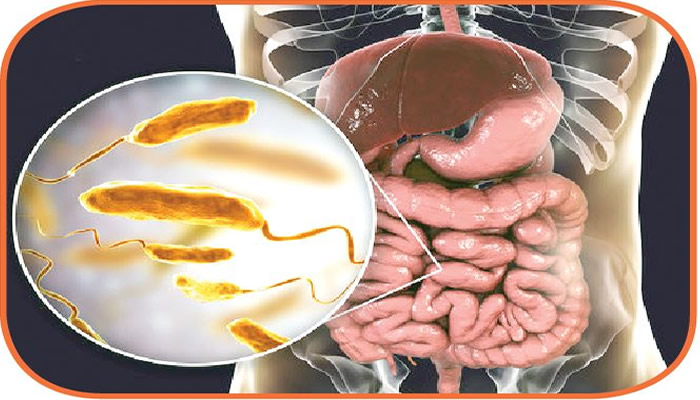
Cholera: FG eyes vaccine donations as cases hit 1,579
To contain the cholera outbreak in the nation, the Federal Government may get emergency doses of the vaccine from the Vaccine Alliance, often known as Gavi.
In a message on Thursday, Dr. Sania Nishtar, the Chief Executive Officer of Gavi, stated on her X handle @SaniaNishtar that the organisation was worried about the cholera outbreak in Nigeria and prepared to assist the nation in responding.
"Deeply concerned about the ongoing #cholera outbreak in Nigeria," the tweet said. In addition to closely monitoring the cholera outbreak, @Gavi and its partners are prepared to assist the government in taking prompt action, which may include requesting emergency vaccination doses if necessary.
"The Gavi-funded global cholera stockpile is fully restocked and prepared to assist in containing outbreaks and safeguarding the most vulnerable individuals."
Dukoral®, ShancholTM, and Euvichol® are the three oral cholera vaccines that have been pre-qualified by the World Health Organisation.
For complete protection, two doses of the vaccination are needed.
The Emergency Operation Centre was launched by the Nigeria Centre for Disease Control and Prevention on Monday, highlighting the seriousness of the situation in the nation.
The EOC would act as the central hub for responding across the nation, according to Dr. Jide Idris, Director General of the NCDC.
In addition, it would help the impacted states and speed up data analysis, decision-making, and communication.
"It will expand surveillance and diagnostic capacity and capacities, enhance case management, provide effective resource deployment, improve training, and intensify public awareness and community involvement activities,” Idris began.
He stated that professionals who carried out the risk assessment last week placed Nigeria at high risk of increased cholera transmission and impact.
As of Wednesday, 54 people had died from the outbreak, according to Dr. Muntari Hassan, the EOC's incident manager.
According to Hassan, 115 local government units in 32 states and 1,579 suspected cases have been reported.
"The outbreak has been declared an emergency, hence the activation of the Emergency Operation Centre on Monday," he stated in an interview with our correspondent.
In an interview on Thursday, Osun State Health Commissioner Mr. Jola Akinola provided an update, stating that of the 14 suspected cases, 13 had negative findings thus far, with one more test still pending.
But he added that the state will not let its guard down and that every effort would be made to prevent a cholera breakout in Osun.
The cholera technical group meeting has just concluded. The report's summary remains unchanged. We currently have 14 suspicious cases on file. Thirteen of the fourteen have unfavourable outcomes. Thus, we anticipate the fourteenth example.
"Even so, when the state team paid the family a visit, the youngster whose sample was brought to the lab was engaged in football. The medications that were given to him belonged to us. Although he is in good health, we will wait until tomorrow (Friday) to find out the outcome. Thus, no case has been confirmed yet," Akinola stated.
At Sabo Market in Ile-Ife, representatives from the state Ministry of Health organised a cholera awareness campaign.
The Ministry of Environment and Sanitation's Permanent Secretary, Mr. Richard Afolayan, and Director of Environmental Health and Sanitation, Mr. Wale Akala, spoke to the market men and women.
However, Dr. Ipalibo Banigo, the chairman of the Senate Committee on Health, stated that everyone had a responsibility to stop the cholera outbreak.
Let me tell you that everyone bears some responsibility for cholera. Make sure that the water you consume is safe to drink for all of us. Everyone in our community needs to realise that people are not urinating inside water sources. We have to make sure that everyone in our communities is receiving better water and sanitation services. Everybody has to make sure the food they eat is clean and hygienic. Thus, it's a team effort," she remarked.
In the meanwhile, in order to get society ready for handling emergencies, the Health Emergency Initiative emphasised on Thursday the importance of public education and emergency response training.
The request was made on Thursday at the Rome Business School in Ikeja, Lagos, during the first responders' training for post-crash intervention and the decrease of non-communicable diseases.
Paschal Achunine, the founder and CEO of HEI, emphasised the need of addressing the cholera outbreak during his speech at the occasion.
Our motto is that no one ought to perish. People are passing away from illnesses that could be treated with little financial assistance, according to Achunine.
"Our goal is to assist those who are most in need, particularly in areas where access to healthy food, safe water, and decent housing is a barrier," he continued.
Achunine reported that HEI has helped 7,260 people in 12 states, including Lagos. "Our training is life-saving. It is said that knowledge is power. Because of this, everyone should save lives wherever they can," he stated.
In a conversation with our correspondent, Sola Aketi, the deputy director of nursing at the Lagos State Ministry of Health, commended HEI's initiatives to lower preventable deaths and enhance access to healthcare.
"We carry out extensive campaigns through media, motorised efforts, and house-to-house visits to raise awareness about the disease and how to prevent it," Aketi stated in response to an epidemic of cholera.
Rehydration is crucial for treating cholera, according to Odunaye-Badmus Sakeenah, a facilitator of the programme and consulting family physician who spoke about the role first responders play in increasing survival rates during catastrophes.
Oral rehydration solution is essential for rehydration. You can make the salt-sugar solution at home or combine one litre of clean water with ORS. A litre of clean water mixed with one teaspoon salt and six tablespoons sugar, together with making sure the patient drinks the entire contents, can potentially save lives, the speaker said.





